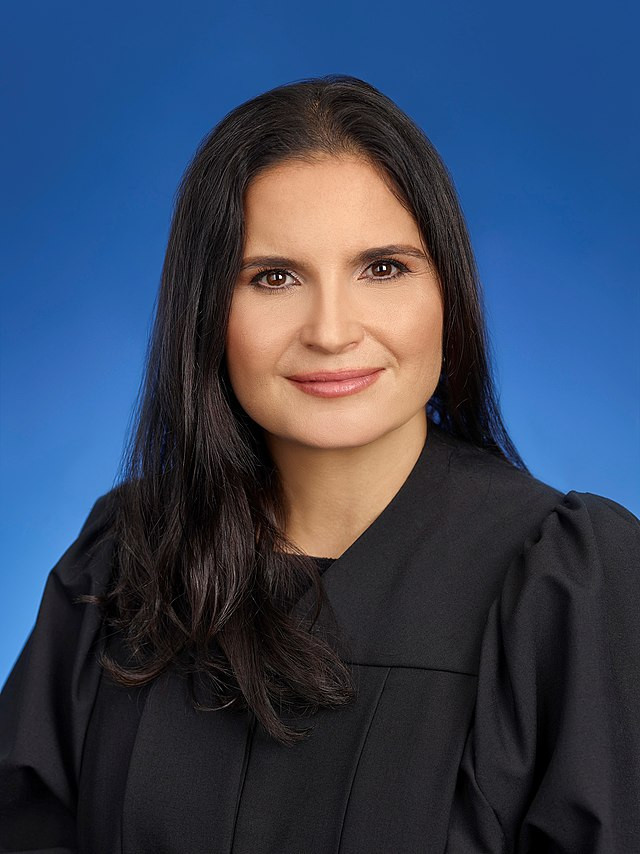The legal community is in an uproar following U.S. District Judge Aileen Cannon's controversial decision to dismiss the classified documents case against former President Donald Trump. The ruling, handed down on Monday, has sparked renewed calls for Cannon's removal from the bench, with critics arguing that her decision undermines long-standing judicial precedents and protocols.
Judge Cannon's ruling was a significant setback for Special Counsel Jack Smith, who was appointed to oversee the investigation into Trump's handling of classified documents. Cannon found Smith's appointment improper, stating it was not based on a specific federal statute and lacked the necessary presidential nomination and Senate confirmation.
"Judge Cannon dismissed decades of institutional precedent, years of recent rulings on Mueller and Smith, and pretty much the entire premise of the special counsel regulations," tweeted national security attorney Bradley P. Moss. "Her ultimate complaint? Jack Smith is TOO independent."
Former Assistant U.S. Attorney Andrew Weissmann told MSNBC that while higher courts, like the 11th U.S. Circuit Court of Appeals or the Supreme Court, could remedy Cannon's dismissal, the ruling also provided an opportunity for the 11th Circuit to remove Judge Cannon if deemed "particularly frivolous."
Attorney Joe Gallina voiced his frustration on social media, stating, "Raise your hand if you agree Aileen Cannon should be EXPELLED from the bench and Jack Smith should immediately appeal to the 11th Circuit!!"
Cannon's ruling has not only incited legal experts but also political figures. Senate Majority Leader Chuck Schumer labeled the ruling as "breathtakingly misguided" and called for Cannon's immediate reassignment, emphasizing the need for an appeal to uphold judicial integrity.
"This breathtakingly misguided ruling flies in the face of long-accepted practice and repetitive judicial precedence," Schumer said in a statement. "It is wrong on the law and must be appealed immediately. This is further evidence that Judge Cannon cannot handle this case impartially and must be reassigned."
Laurence Tribe, a constitutional law professor at Harvard Law School, described Cannon's decision as "unprecedented and extreme" and predicted it would likely be overturned on appeal. He suggested that Cannon might be positioning herself for a higher appointment in a potential future Trump administration.
"Her position, among other things, the fact that she took so long to decide this issue even though it was before her four months, indicates that it's calculated simply to serve as a kind of dress rehearsal, or job application when Justice [Samuel] Alito or Justice Thomas decided to retire from the Supreme Court," Tribe said.
In contrast, Republicans have celebrated the decision, viewing it as a vindication for Trump and a blow to what they perceive as politically motivated prosecutions. Speaker Mike Johnson tweeted, "House Republicans repeatedly argued that ... Smith abused his office's authority in pursuit of President Trump, and now a federal judge has ruled Smith never possessed the authority in the first place."
Meanwhile, Trump himself wasted no time in proclaiming victory. "I won! Case dismissed! Now it's time for us to unite the country," he wrote in a campaign message, though he later reverted to a more familiar combative tone on his Truth Social platform, calling for the dismissal of all remaining cases against him and reiterating claims of a political conspiracy against him.
Adam Schiff, a Democratic member of the House Judiciary Committee, voiced his concern on social media, asserting that Cannon's ruling was another example of political interference in the judiciary. "Today's precedent-shattering decision in Florida is further proof that the guardrails of our democracy are coming down," Schiff tweeted. "Again, a partisan judge throws out decades of precedent to reach a desired political outcome."
As the legal and political ramifications of Cannon's ruling unfold, the immediate question remains whether Smith will appeal the decision and seek Cannon's removal from the case. Legal scholars like Carl Tobias, a professor at the University of Richmond, anticipate a swift appeal, possibly bypassing the 11th Circuit for a direct approach to the Supreme Court due to the critical nature of the matter.
"The bottom line would be that this is just going to create more delay, so it will make it impossible to ever have a trial before the election," Tobias noted. "This is also in striking contrast to how long it's taken her to rule on almost everything else."






